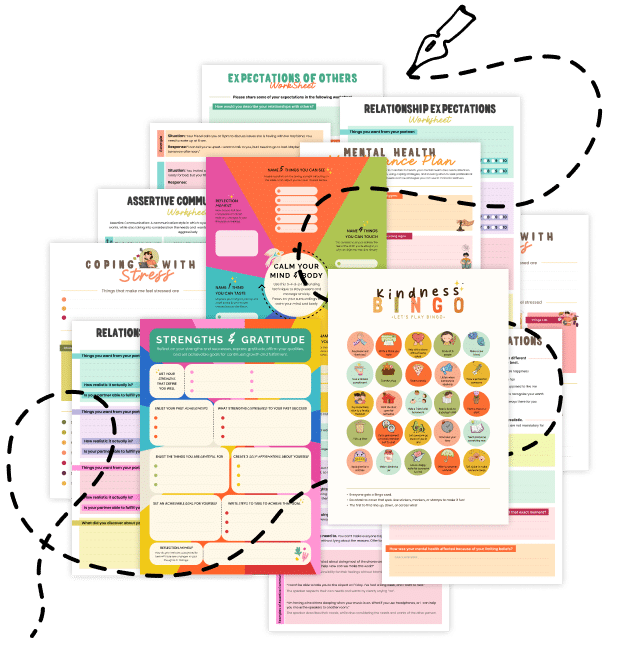20 Things You Should Know About Long-Term Potentiation
Discover the science behind how your brain strengthens memories. Explore 20 essential insights on Long-Term Potentiation—its mechanisms, impact on learning, and practical tips to boost cognitive function.
1. What Is Long-Term Potentiation?
Long-Term Potentiation (LTP) is a long-lasting enhancement in signal transmission between neurons. It’s widely recognized as a key cellular mechanism underlying learning and memory.
2. The Foundation of Learning
LTP strengthens the connections (synapses) between neurons when they are activated simultaneously, making it easier for them to communicate in the future. This “synaptic plasticity” is crucial for forming long-term memories.
3. A Discovery That Changed Neuroscience
First observed in the hippocampus—a brain region vital for memory—by researchers Terje Lømo and Tim Bliss in the 1970s, Long-Term Potentiation (LTP) has since become a cornerstone in understanding how learning occurs at the cellular level.
4. The Role of High-Frequency Stimulation
LTP is typically induced by high-frequency stimulation of neural pathways. This intense, rapid activity signals neurons to strengthen their connections, laying the groundwork for improved memory storage.
5. NMDA Receptors Are Key
A critical player in LTP is the NMDA receptor. These receptors allow calcium ions into the neuron when activated, triggering a cascade of biochemical processes that enhance synaptic strength.
6. Involvement of AMPA Receptors
Once the NMDA receptor is activated, more AMPA receptors (another type of glutamate receptor) are recruited to the synapse. This makes the synapse more sensitive to future stimulation.
7. Synaptic Plasticity in Action
Long-Term Potentiation (LTP) is a prime example of synaptic plasticity—the ability of synapses to change in strength. This adaptability is what enables the brain to learn, store, and retrieve new information over time.
8. How Long-Term Potentiation Affects Memory
By reinforcing synaptic connections, LTP makes it easier for a neuron to activate its neighbor. This mechanism underlies how experiences become encoded as lasting memories.
9. The Hippocampus: A Learning Hub
LTP is especially prominent in the hippocampus, a brain region that plays a central role in forming new memories. Studies on LTP in the hippocampus have provided key insights into learning and memory disorders.
10. Not Just in the Hippocampus
While most research focuses on the hippocampus, Long-Term Potentiation (LTP) also occurs in other brain regions, supporting various functions from sensory processing to motor control.
11. Time Is a Factor
The effects of Long-Term Potentiation (LTP) can last from hours to even weeks, depending on the intensity and frequency of the stimulation. This persistence is what makes long-term memory possible.
12. Role in Skill Acquisition
Beyond declarative memory (facts and events), LTP contributes to procedural memory—the skills you perform automatically, like riding a bike or playing an instrument.
13. Sleep and LTP
Quality sleep plays an essential role in Long-Term Potentiation (LTP). During sleep, particularly in the slow-wave phases, your brain consolidates memories by reinforcing LTP processes, making rest a crucial part of learning.
14. Exercise Boosts Long-Term Potentiation
Regular physical activity has been shown to enhance LTP. Exercise increases blood flow, releases neurotrophic factors, and creates an environment conducive to strengthening neural connections.
15. Diet’s Impact
Certain nutrients, such as omega-3 fatty acids, antioxidants, and proteins, can support Long-Term Potentiation (LTP) by promoting neuronal health and optimal synaptic function.
16. Stress and Long-Term Potentiation
Chronic stress can impair LTP by increasing cortisol levels, which may hinder the formation of new memories. Managing stress is therefore important for maintaining effective learning processes.
17. Cognitive Training
Engaging in challenging cognitive activities—like puzzles, learning a new language, or playing strategy games—can promote LTP. Such activities help keep your brain “in shape” by constantly reinforcing synaptic connections.
18. Technological Advances
Emerging techniques like neurofeedback and non-invasive brain stimulation (e.g., transcranial magnetic stimulation) are being researched for their potential to enhance LTP and improve cognitive function.
19. Clinical Implications
Understanding LTP has significant implications for treating neurological disorders. Research into LTP is paving the way for potential therapies for conditions such as Alzheimer’s disease, depression, and other cognitive impairments.
20. Related Topics to Explore
- Neuroplasticity: Broader changes in the brain’s structure and function.
- Memory Reconsolidation: How recalling memories can modify them.
- Cognitive Load Theory: Managing mental resources to optimize learning.
- Procedural Memory: How habits and skills are formed and maintained.
Quick Tips to Enhance LTP and Boost Learning
- Prioritize Quality Sleep: Aim for 7–9 hours of quality sleep to support memory consolidation.
- Stay Physically Active: Incorporate regular exercise into your routine to promote brain health.
- Eat Brain-Boosting Foods: Include omega-3-rich foods, antioxidants, and proteins in your diet.
- Engage in Mental Challenges: Regularly challenge your brain with puzzles, reading, or learning new skills.
- Manage Stress: Practice mindfulness, meditation, or deep-breathing exercises to reduce cortisol and support LTP.
Long-Term Potentiation is the brain’s remarkable mechanism for strengthening connections between neurons, forming the basis of learning and memory. By understanding and supporting LTP through healthy sleep, exercise, proper nutrition, and cognitive challenges, you can boost your brain’s ability to store and recall information. Embracing these strategies not only enhances learning but also contributes to overall cognitive health and longevity.
Share this article with anyone interested in unlocking the secrets of memory and learning. Understanding LTP might just inspire you to make small, powerful changes in your daily habits for long-term brain health!

